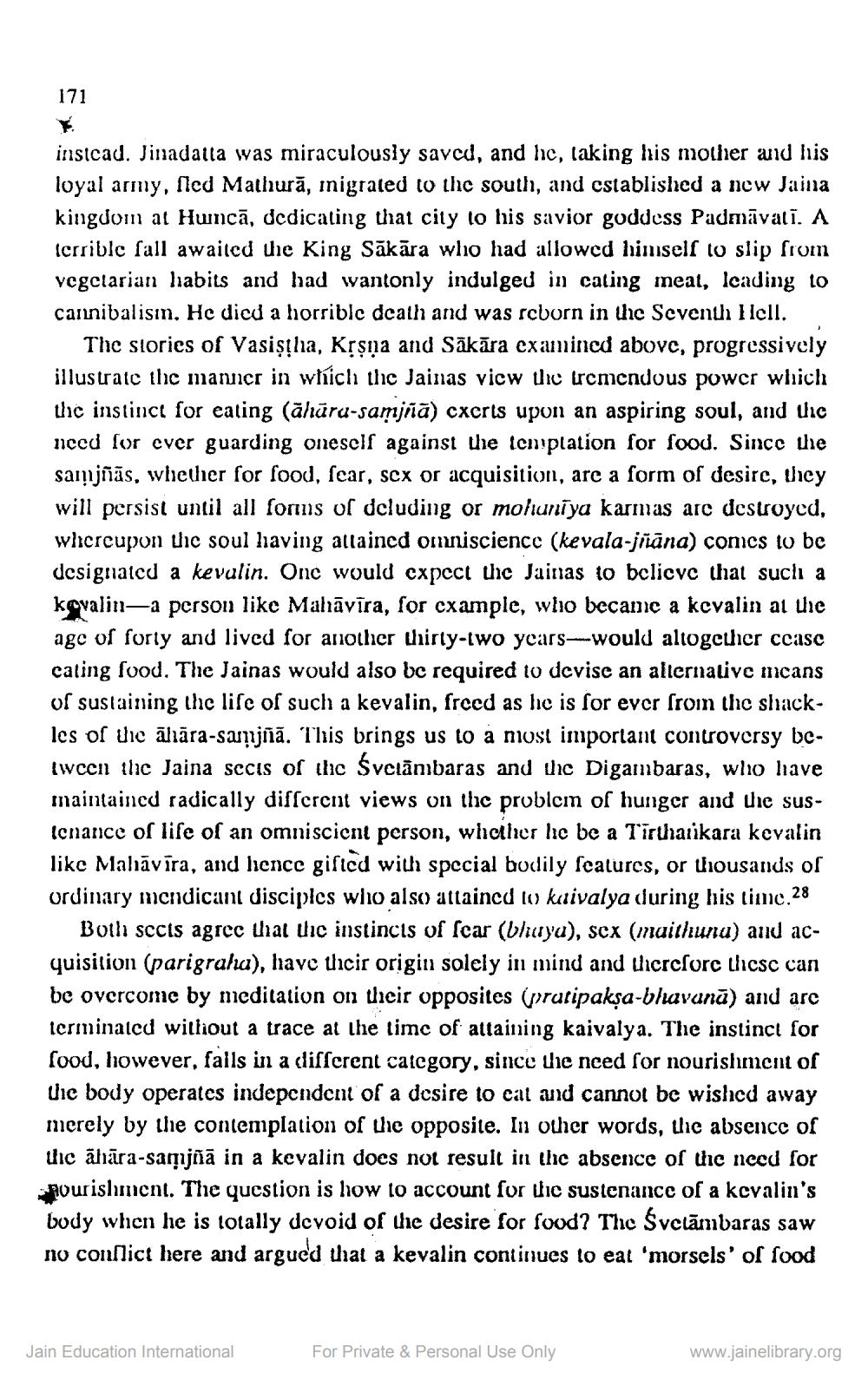________________
171
insicau. Jinadatta was miraculously saved, and lic, taking his mother and his loyal army, sed Mathură, inigrated to the south, and cstablished a new Jaina kingdom at Huncā, dedicating that city to his savior goddess Padmāvati. A (crriblc fall awaited the King Sākāra who had allowed himself to slip from vegetarian liabits and had wantonly indulged in cating meal, Icading to cannibalism. He died a horrible death and was reborn in the Seventh Ilcll.
The stories of Vasiştha, Krşğa and Sākāra examined above, progressively illustrate the manner in which the Jainas vicw tic tremendous power which the instinct for eating (āhūra-samjñā) cxerts upon an aspiring soul, and Uic nccd for ever guarding oneself against the templation for food. Since the samjñās, whether for food, scar, sex or acquisition, are a form of desire, Uicy will persist until all forms of dcluding or molunīya karmas arc destroyed, whcrcupon uic soul liaving allained omniscience (kevala-jiāna) concs to be designated a kevulin. One would expect the Jainas to bclicvc that such a kovalin—a person like Malāvīra, for example, wlio becamc a kcvalin at the age of forty and lived for another thirty-two years-would altogether ccasc cating food. The Jainas would also be required to devise an alternative means of sustaining the lise of such a kevalin, frced as he is for ever from the shackIcs of uc ālāra-samjñā. This brings us to a niost important controversy bc{ween the Jaina sccis of the Svelānibaras and the Digambaras, who have maintained radically different views on the problem of hunger and the susIcnance of life of an omniscient person, whether he be a Tirtarikara kevalin like Malāvīra, and licnce gisied with special bodily sealures, or thousands of ordinary mendicant disciples who also attained tv kuivalya during his time.28
Both sccis agrec Hial lic instincts of scar (bhuya), sex (maithuna) and acquisition (parigraha), have Uncir origin solely in mind and Uicrcforc llicsc can be overcome by meditation on their opposites (rutipaksa-bhavanā) and are terminated without a trace at the time of attaining kaivalya. The instinct for food, however, falls in a clifferent category, since we need for nourishment of Hic body operates independent of a desire to cal and cannot be wished away merely by the contemplation of the opposite. In other words, die absence of Hic āhāra-samjñā in a kevalin does not result in the absence of the nccd for pourislımcnt. The question is how to account for uic sustenance of a kcvalin's body when he is totally devoid of the desire for food? The Svclānbaras saw no conflict here and argued that a kevalin continues to eat 'morsels' of food
Jain Education International
For Private & Personal Use Only
www.jainelibrary.org




